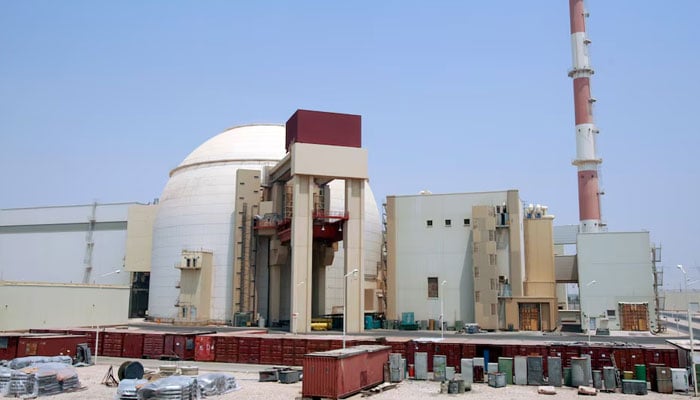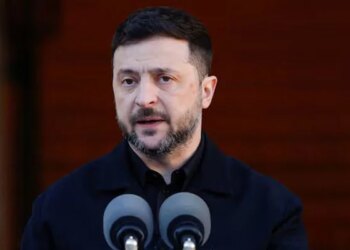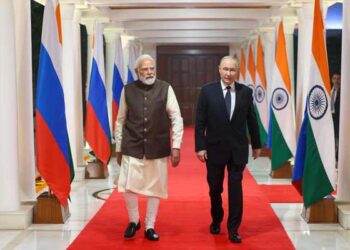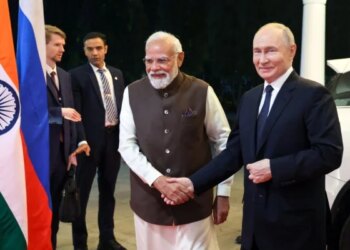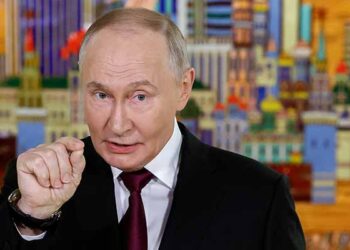Select Language:
New Insights on Iran’s Nuclear Ambitions Amid Ongoing Negotiations
Overview of the Bushehr nuclear reactor, located about 1,200 kilometers (746 miles) south of Tehran, Iran. — Reuters/File
- "Simply denying access to nuclear weapons is not sufficient."
- "Verification is essential," asserts IAEA Director Rafael Grossi.
- An official underlines the need for cooperation, especially as diplomatic efforts are urgently required.
TEHRAN: On Wednesday, Rafael Grossi, the head of the United Nations’ nuclear oversight agency, cautioned that Iran is "not far" from acquiring the capability to produce a nuclear bomb, just prior to his visit to Tehran for discussions.
The U.S. and other Western nations have long accused Iran of trying to develop nuclear weapons, a claim that Tehran has continuously refuted, insisting that its nuclear program is intended solely for peaceful purposes.
"It’s like piecing together a puzzle. They possess the components, and one day they may assemble them," Grossi stated in an interview with the French newspaper Le Monde. He mentioned, "There remains a distance to cover before reaching that point. However, it’s important to recognize they are not far off."
The IAEA has the responsibility of monitoring Iran’s nuclear activities and ensuring compliance with a 2015 nuclear agreement, which unraveled three years later when the United States withdrew during President Donald Trump’s first term.
"It’s insufficient to merely declare to the world ‘we do not possess nuclear weapons’ and expect blind faith. Verification is a necessity," Grossi emphasized.
Upon his arrival in Tehran, Grossi met with Foreign Minister Abbas Araghchi and is expected to confer with Mohammad Eslami, head of Iran’s nuclear energy agency. He characterized his discussion with Araghchi as "significant."
"Collaboration with the IAEA is crucial for providing trustworthy assurances regarding the peaceful intentions of Iran’s nuclear program in a time when diplomatic efforts are critically needed," Grossi expressed on X.
His visit comes just ahead of a second set of negotiations between Iran and the U.S. scheduled for Saturday, following a recent high-level meeting between the two nations, their first since Trump exited the nuclear agreement in 2018. Both parties described the previous talks as "constructive."
"Non-Negotiable Issues"
Previously, Araghchi stated that Iran’s uranium enrichment through its nuclear program is "non-negotiable," responding to U.S. Middle East envoy Steve Witkoff’s calls for an end to enrichment.
"Iran’s enrichment practices are established and accepted," he told the press. "We are prepared to foster trust in response to any legitimate concerns, but the question of enrichment is off the table."
His comments followed Witkoff’s assertion on Tuesday that any nuclear agreement would require Iran to "cease and eliminate" uranium enrichment. A day earlier, he had merely suggested that Iran revert to the 3.67% enrichment limit set by the 2015 accord with major global powers.
The IAEA’s latest report indicated that Iran holds approximately 274.8 kilograms (605 pounds) of uranium enriched to levels as high as 60%. This amount significantly exceeds the limits established by the 2015 agreement but does not reach the 90% enrichment level required for nuclear weaponry.
After resuming his presidency in January, Trump reinstated extensive sanctions against Iran under his "maximum pressure" strategy. In March, he sent a letter to Iran’s Supreme Leader Ayatollah Ali Khamenei urging negotiations while warning of potential military action if talks fail to yield an agreement.
As the new round of discussions approaches on Saturday, Araghchi criticized what he labeled the Trump administration’s "conflicting and contradictory stance."
"We will unveil the Americans’ true positions during the negotiation session," he stated, expressing hopes to initiate discussions on a potential agreement framework, contingent upon the U.S. adopting "constructive" positions. "Continued conflicting statements will lead to obstacles," he cautioned.
Location of Upcoming Talks
Iranian state media reported that the negotiations on Saturday are set to take place in Rome, facilitated by Oman, a detail confirmed by an Italian spokesperson. However, neither U.S. nor Iranian officials have officially acknowledged the venue.
Araghchi is scheduled to visit Iran’s ally, Russia, on Thursday, as confirmed by Tehran’s ambassador in Moscow, Kazem Jalili. Iran stated that this visit was "pre-planned" but would also cover discussions relevant to the U.S.-Iran negotiations.
"My trip to Russia aims to convey a written message from the Supreme Leader to President Vladimir Putin," Araghchi noted.
In anticipation of the U.S. talks, Iran has been engaging with Russia and China, both of which were signatories to the 2015 agreement.
Prior to the upcoming discussions, Iranian President Masoud Pezeshkian expressed optimism that an agreement with the United States could be reached, according to the official IRNA news agency.
On Tuesday, Khamenei warned that while the initial stages of negotiation appear promising, they might ultimately lead to no results. "The negotiations may or may not be fruitful," he said, pointing out that Iran has already established its "red lines."
The Revolutionary Guards claimed that Iran’s military capabilities would remain off-limits in any discussions. Late Sunday, IRNA reported that Iran’s influence in the region and its missile capability—which have raised concerns in the West—would also form part of its "red lines."

